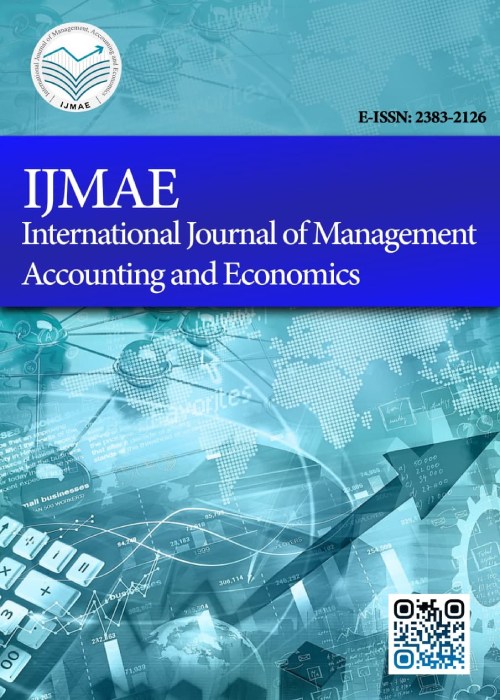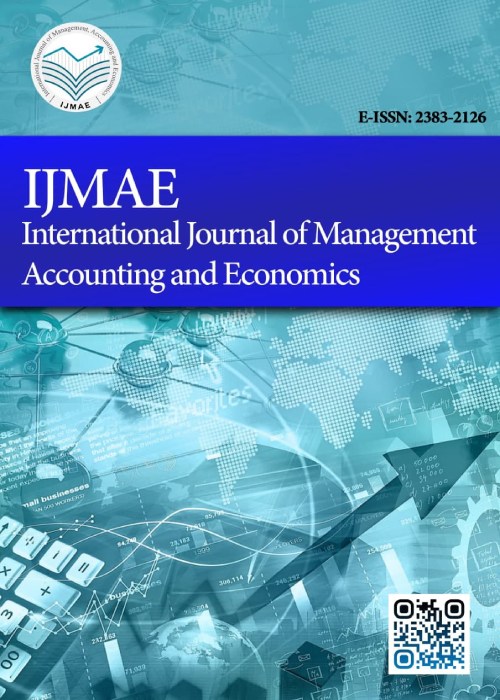فهرست مطالب

International Journal of Management, Accounting and Economics
Volume:10 Issue: 11, Nov 2023
- تاریخ انتشار: 1402/11/10
- تعداد عناوین: 6
-
Pages 875-903Amidst growing concerns about environmental degradation, global trends increasingly emphasize the urgency to adopt eco-friendly consumption patterns. This paradigm shift drives the emergence of sustainability-centered products, especially in the cosmetics sector. Despite experiencing substantial growth, the eco-friendly cosmetics industry in Indonesia continues to grapple with various obstacles that require resolution. In addition, researchers' attention to green cosmetics still needs to be increased. This study integrates environmental consciousness into the Theory of Reasoned Action (TRA) framework to bridge this research gap. The main objective is to comprehensively examine consumers' intention to purchase environmentally friendly cosmetic products. By employing a quantitative approach, we surveyed a sample of 305 respondents from Indonesia. The collected data was then analyzed using Partial Least Squares Structural Equation Modeling (PLS-SEM) technique to validate the hypotheses. The results showed that environmental consciousness and subjective norms directly and significantly affect consumer attitudes. Likewise, environmental consciousness, subjective norms, and consumer attitudes influence consumers' intention to purchase green cosmetics. In addition, it was revealed that consumer attitude serves as a potential mediator in mediating the effect of environmental consciousness and subjective norms on consumer purchase intention. This study offers insights into sustainable cosmetics. Companies can use this to enhance marketing strategies for environmentally conscious products.Keywords: Environmental Consciousness, green purchase intention, Green Cosmetic, Subjective Norms, Theory of Reasoned Action (TRA) Integration
-
Pages 904-923Past studies have presented inconclusive results on the relationship between profitability and firm value, there is a need to take into consideration a moderating variable to strengthen the relationship. This study therefore, introduces dividend policy as moderator to examine its effect on the relationship between profitability and firm value of listed deposit money banks in Nigeria. The study adopted the Ex Facto-research design and the study used ten years, from 2012 to 2021. The study's population consisted of 15 listed banks on the floor of the Nigeria Exchange Group, and 12 were selected as study samples after filtering time frame. Secondary data were collected from audited financial report and accounts of the sample banks and the Nigeria Exchange Group's website. STATA was used to analyze the data, and the results revealed a negative direct link between profitability as assessed by return on assets and return on equity and firm value as measured by market value added. Furthermore, a higher dividend policy ratio strengthens the relationship between profitability and firm value. We add evidence that the dividend policy acts as a pure moderator in the banking industry. However, based on the findings, it is suggested that the regulatory authorities develop post-dividend payment legislation that can effectively contribute to the firm's dividend policy decision. The findings highlight the importance of profitability and dividend policy in maximizing corporate value in the banking industry.Keywords: Dividend Policy, Firm Value, information asymmetry, signaling, Profitability
-
Pages 924-937Accurate forecasting of Gross Domestic Product (GDP) is crucial for policymakers, businesses, and investors. This research explores the use of SARIMAX, ARIMA, and Random Forest models to forecast GDP in the UK. The study investigates the relationship between GDP and the unemployment rate, considering historical GDP and unemployment data collected from the Office of National Statistics (ONS). Both SARIMAX and ARIMA models indicate a negative relationship between GDP and the unemployment rate, although the coefficients are not statistically significant. On the other hand, the Random Forest model has shown its supremacy when it comes to the accuracy of prediction. The results suggest that other factors may have a stronger influence on GDP fluctuations based on the empirical findings. Future research should consider additional variables and advanced modelling techniques to further explore the relationship between GDP and the unemployment rate, contributing to a deeper understanding of the UK economy and informing effective economic management.Keywords: ARIMA, Forecasting, GDP, Random Forest models, SARIMAX
-
Pages 938-949This study sought to address the effects of earnings quality on the financial performance of Non-financial firms listed at the Nairobi Securities Exchange(NSE). Three attributes of earnings quality; predictive value, feedback value, and earnings accruals quality, were adopted as measures of earnings quality. The study adopted returns on assets (ROA) to measure financial performance. A 5-year data (2018-2022) for the 44 non-financial firms listed in the Nairobi Securities Exchange were obtained from secondary data sources. The data were analyzed using Stata 17, and the findings showed that accrual quality and feedback value exhibited a significant positive relationship with financial performance. The predictive value of the earnings revealed an insignificant negative relationship with financial performance. The model was significant at a 10% significance level with a coefficient of 0.492. This implies that earnings quality constructs significantly and positively affect the performance of Kenyan public-listed non-financial firms. The findings of this study have important implications for users of financial information in ascertaining the importance of earnings quality on the performance of Kenyan public non-financial firms. This study is also beneficial to standard setters in Kenya that view the earnings quality as an indirect indicator of the quality of financial reporting standards that have been issued.Keywords: accruals quality, Earnings Quality, feedback value, predictive value
-
Pages 950-972Although the qualitative approach has been recognized as an effective approach to link accounting research with accounting practices and accounting education, the accounting research is still dominated by the quantitative approach. The unpopularity of the qualitative approach in accounting research is attributed to several obstacles related to individuals, management, and the nature of the qualitative approach. Therefore, the primary objective of this study is to investigate the obstacles of the use of the qualitative approach in accounting research that come from accounting faculty members, management of universities, and the nature of qualitative research. In order to achieve the objectives of the study, the analytical descriptive approach was used based on a questionnaire which was distributed to 60 accounting faculty members at different academic ranks at Libyan universities. The data was analyzed by descriptive statistics and One Sample T Test and one sample Wilcoxon Singed Rank Test. The results of the study showed that the three selected obstacles of using the qualitative approach in accounting research are facing accounting faculty members at Libyan universities and they are statistically significant. The main obstacle is the management of Libyan universities, followed by the accounting faculty members, and finally the obstacles related to the nature of the qualitative approach.Keywords: Accounting Research, Libyan Universities, Obstacles of Qualitative Research
-
Pages 973-996The recent coronavirus pandemic was a black swan event, and the airline industry was one of the most stricken. The crisis that airlines had to face during the pandemic was not just a health-related crisis but a consequential one within their own canceled flights, rebooking concerns, and a surge in refund requests they lacked the liquidity to address. Communication with stakeholders is even more crucial in times of distress. How airlines respond to the crisis shapes their reputation and future engagements. This study aims to discuss what the pandemic prompted in the Twitter communication of the three leading airlines in the Philippines, providing an insight into how they behaved before and during the pandemic, focusing on their message content and delivery strategy. Utilizing a descriptive-qualitative research design, the study thematically analyzes airlines’ tweets and customer responses. The study contributes communication strategies that can help airlines instill confidence among passengers during and after a crisis, with an emphasis on instructing information, human connection, empathy, and responsiveness, and demonstrates how airlines can strategically optimize the microblogging platform in crisis communication and customer service support.Keywords: airline industry, COVID-19, crisis communication, Twitter


